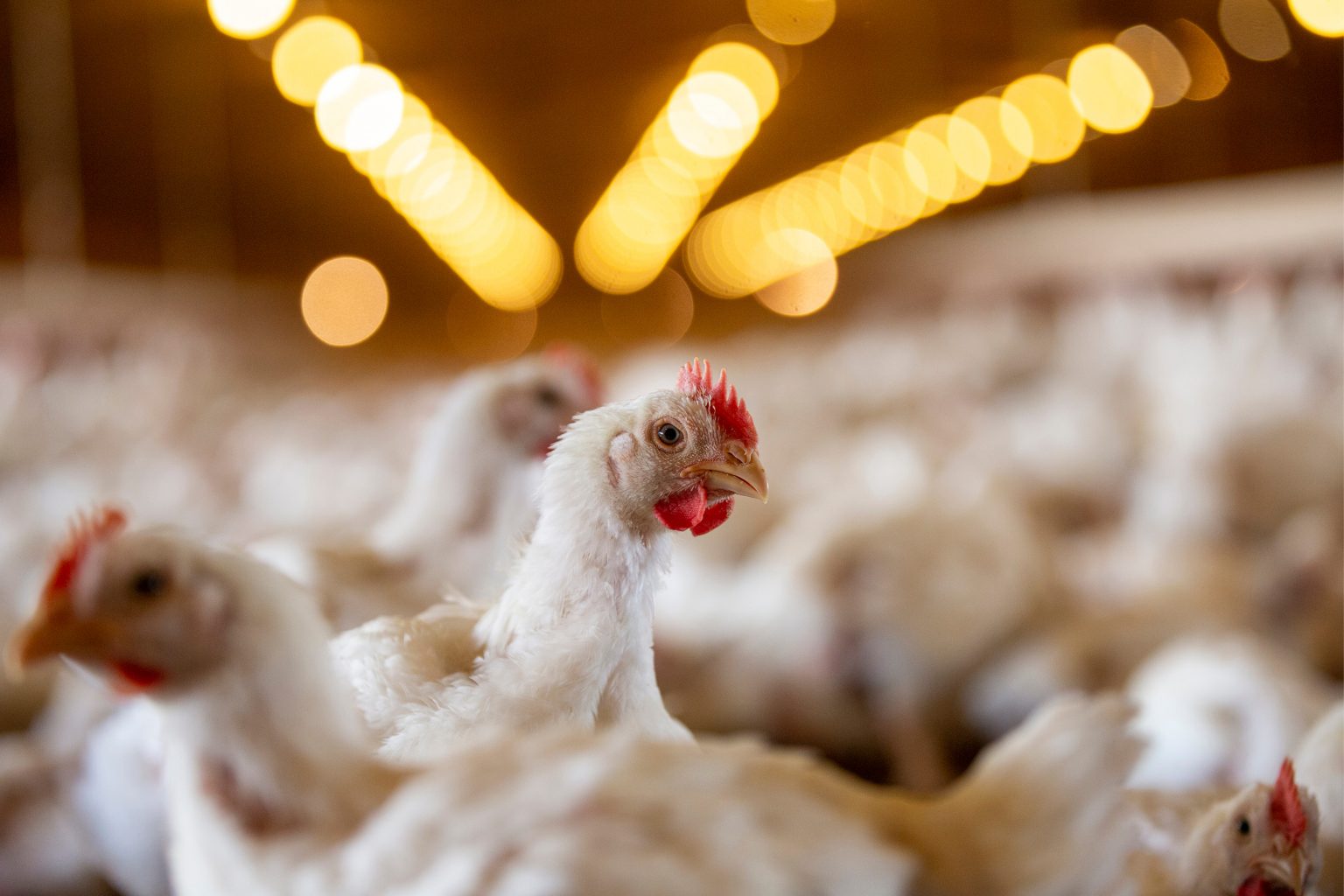
Tyson Foods’ animal welfare research team recently embarked on a study using animal preference to test which environmental enrichments its broiler chickens prefer. The project is among the many underway at Tyson Foods’ Broiler Welfare Research Farm (BWRF), a state-of-the-art four-house commercial broiler farm that allows the company’s Office of Animal Welfare and its research partners to scientifically evaluate and understand how welfare practices can impact broiler behavior and welfare outcomes in a commercial setting.
The BWRF, which opened in October 2020, is a unique facility within the poultry industry. The operating four-house broiler farm gives Tyson Foods and trained collaborators from academia the ability to monitor and evaluate welfare. Through viewing rooms, researchers can observe the birds’ natural behaviors without the interjecting presence of humans.
“Chickens have a very different perception of the world, and it is important that we respect that when we are making decisions for them,” said Dr. Karen Christensen, Senior Director of Animal Welfare, Tyson Foods. “Through their actions, they tell us loud and clear what they want – we just have to know how to listen.”
The project is part of a two-year grant from the U.S. Poultry and Egg Association to study the impact of different lighting schemes and enrichments on the welfare of broiler chickens, research that will benefit the entire industry.
Enrichments (objects placed in the house to provide a more interesting or ‘enriching’ environment for the chickens) can be a key component of an effective animal welfare strategy that promotes more natural behaviors. Tyson Foods creates enrichments that are safe for growers, easily portable, made with recycled materials, and completely bio-secure to ensure no pathogens are introduced to the chickens’ environment.
Tyson Foods researchers focused on three structural variations – ramps, huts and boxes. Initial results showed a strong preference toward the huts among the chickens. As an animal that is considered prey in its natural environment, the huts provide a sizeable, shelter-like structure that they could sit around and under, presumably giving them a sense of being protected. As further evidence, the chickens gravitated toward the huts independently and returned to them whenever they were removed and replaced.
University of Arkansas researchers are assisting in sample collection and behavior evaluation, monitoring chickens with and without enrichments. This work includes examining physiological factors that are good evaluations of positive welfare, such as dopamine and serotonin levels, and related chemical expressions as an indicator of the chickens’ happiness with the given environment. By measuring key health indicators of the chickens, as well as analyzing brain activity to assess their level of stress, researchers were able to make preliminary conclusions about the positive impact of effective enrichment solutions on broiler welfare.
“This research is part of Tyson Foods’ larger commitment to invest in innovative science and technologies that improve animal welfare on a continuous, sustainable enterprise level,” said Christensen. “Our vision is to be the leader in animal welfare through a commitment that is grounded in compassionate care and based on sound science. It’s a Tyson Foods commitment, and it’s the right thing to do.”
In the next round of this research, the team will be testing the impact of the more effective hut enrichments compared with a standard control barn without enrichments. The team expects to see demonstrable benefits across behavioral assessments, leg health, and dopamine and serotonin regulation with hut enrichments. Following rigorous analysis of the active research project, the team is confident its confirmed findings will inform a potential future rollout of the hut structure to all Tyson Foods chicken houses around the country, extending the proven health and welfare benefits of the tested enrichments to animals nationwide.
In addition to the enrichment research, Tyson Foods is collaborating on four projects with outside research groups as part of the SMART broiler project that was funded by McDonald’s and the Foundation for Food and Agricultural Research (FFAR), a part of the USDA.
Animal welfare is a top priority at Tyson Foods, and our culture of animal welfare and well-being is grounded in extensive training, innovation, research, and collaboration. Learn more about our animal welfare efforts and commitments here.

